Presenters
More presenter information will be added as soon as it becomes
available.
 John Anderson (USA) John Anderson (USA)
John works as the Mainstream Adjustment Counselor for the Mainstream
Center at Clarke School for the Deaf/Center for Oral Education.
He grew up with a progressive hearing loss and now uses a cochlear
implant. He earned his MA in counseling psychology from Antioch
New England Graduate School in Keene NH. He is a Licensed Mental
Health Counselor in Massachusetts. He works primarily with students
in the mainstream who are struggling to succeed either academically
and/or socially. He frequently gives workshops on experience of
hearing loss for students in mainstream schools and is the author
of a children's book on adjustment to hearing loss called My
Hearing Loss and Me: We Get Along Most of the Time.
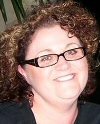 Karen Bontempo (Australia)
Karen Bontempo (Australia)
Karen has practiced as an Australian Sign Language (Auslan) interpreter
for nearly 20 years and has worked as an interpreter educator since
1996. Karen is an examiner for the National Accreditation Authority
for Translators and Interpreters and serves on the national board
of the Australian Sign Language Interpreters’ Association.
Karen holds academic qualifications in a number of disciplines including
clinical psychology, education, and linguistics. She is a member
of the Centre for Translation and Interpreting Research at Macquarie
University in Australia, where she is also a PhD (Linguistics) candidate,
researching factors that may be predictive of interpreter performance.
 Cathy Clark (Australia)
Cathy Clark (Australia)
Cathy is the Coordinator of the Centre of Excellence for Students
who are Deaf and Hard of Hearing at NMIT since 2004. Cathy previously
worked in TAFE NSW as a Teacher/Consultant and was a manager of
a Job Network agency.
In her current role, Cathy has managed several projects funded
through the Victorian State Government related to the delivery of
Auslan through distance education, assistive technology and professional
development, support for Auslan interpreters working in TAFE. She
also manages a booking service of Auslan interpreters in TAFE. She
is currently teaching the Certificate IV Training and Assessment
to a group of deaf learners.
Cathy is a passionate advocate for the right of deaf and hard of
hearing people to access an education and sound employment opportunities.
Cathy holds a Bachelor of Adult Education and the Certificate IV
in Training and Assessment (NMIT).
 Pip Cody (Australia) Pip Cody (Australia)
Pip has been working as an interpreter since 1992, and as an interpreter
trainer since 2003. She holds a BA in Linguistics, a Graduate Diploma
in Auslan (Interpreting), and a Graduate Diploma in Counselling.
She has a long-standing interest in addressing the issues around
the high attrition rate amongst newly qualified interpreters in
Australia.
 Marc Curtis (Australia) Marc Curtis (Australia)
Marc has worked for Videaf for five years and currently manages
the Auslan Teaching and Interpreting Department. His background
has been in business management with a particular emphasis on the
community sector.
Marc has worked with many high profile organisations; in particular,
Marc was employed by the Department of Defence to review their Army,
Navy and Air force recruiting process in view of achieving target.
In more recent times Marc has worked in the Job Network managing
several labour market programs.
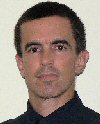 Earl Fleetwood (USA) Earl Fleetwood (USA)
Earl Fleetwood has worked as a professional interpreter for over
25 years. He holds a Master’s Degree in ASL-English Interpretation
from Gallaudet University where he has also taught as an adjunct
instructor. He is nationally certified as both a signed language
interpreter and a cued language transliterator and has worked at
the national level with several organizations for the rights of
Deaf native cuers. Mr. Fleetwood is co-founder of Language Matters,
Inc. an, organization that provides a series of ASL-English interpretation
courses approved for graduate and undergraduate credit by the American
Council on Education. In addition to working as an interpreter and
an interpreter educator, he has conducted research related to linguistics
and interpretation, with a focus on the K-12 setting. Most recently,
Mr. Fleetwood serves as co-editor of the series Studies in Interpretation
published by Gallaudet University Press.
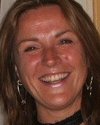 Caron
Hawkings (UK) Caron
Hawkings (UK)
Caron's interpreter training commenced at Bristol University in
1994 at the old age of 35, where she achieved a Diploma in Higher
Education in Deaf Studies (Interpreting) in 1996. She qualified
by the Post Grad Diploma in BSL/English Interpreting in 2002. She
have experience of both university education and vocational training
routes for learning BSL
Her interpreting started in education, then she gained a wide breadth
of experience in community interpreting to the point now where she
work mainly with Deaf professionals. She currently works part-time
for a Deaf-led private interpreting agency and is part-time freelance/self-employed.
On her freelance days she interprets, mentors and is involved in
training programmes for interpreters and mentors. Feedback is a
crucial part of mentoring and training but she also sees it as part
of her every day work with co-interpreters and clients (both Deaf
and hearing).
She has been involved with her professional association (ASLI)
since 1996 and her most recent position has been that of Professional
Development Secretary (director post) until the end of 2008. She
continues to oversee the ASLI mentoring programme.
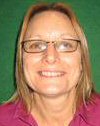 Sandra Leane (Australia)
Sandra Leane (Australia)
Sandra is NAATI accredited at Interpreter Level and has been a
practising Auslan/English interpreter for many years. She has an
MA in Linguistics from Monash University and originally trained
as a teacher of the deaf but has been working in TAFE part time
for the last fifteen years. Presently Sandra works part time as
a staff Auslan/English interpreter for Vicdeaf and a part time teacher
at Kangan Batman TAFE. A founding member of the Victorian sign language
interpreter association (AVID) Sandra is the immediate past President
and currently Acting President of ASLIA Vic. She also teaches one
module in the current Diploma of interpreting (Auslan) delivered
at the RMIT.
 Robert
G. Lee (UK) Robert
G. Lee (UK)
Robert has worked as an American Sign Language-English Interpreter
for over twenty years in a variety of settings, specializing in
medical situations and conference interpreting. He holds an MA in
Applied Linguistics from Boston University and has taught Interpreting
and Linguistics at Northeastern University in Boston as well as
in seminars all over the US, Canada, the UK and Europe.
In addition, he has taught online courses for training Interpreting
Mentors. Robert has authored or co-authored a variety of articles
and chapters on both Interpreting and the linguistics of American
Sign Language. He has served on the boards of the Conference of
Interpreter Trainers as well as serving on the Professional Standards
Committee and the Publications Committee of the National Registry
of Interpreters for the Deaf (RID) in the United States. He is currently
a member of the Editorial Board of the Journal of Interpretation
published by RID.
 Peter
Llewellyn-Jones (UK) Peter
Llewellyn-Jones (UK)
Peter qualified as Social Worker (and interpreter) in 1972 and
has, at different stages of his career, been head of the interpreting
services for both the Royal National Institute for the Deaf and
the British Deaf Association. From 1978 to 1981 he was a Research
Associate at Bristol University and, with Dr Jim Kyle, worked on
the first research project in the UK to focus on sign language interpreting.
In 1992, he wrote the BA (Hons.) in Interpreting for Wolverhampton
University and, in 1997, SLI Ltd. (a training company established
by Peter and Dennis Cokely) signed a formal partnership agreement
with the University of Central Lancashire to develop and teach a
Postgraduate Diploma in BSL - English Interpreting (for which he
is still Joint Course Leader). Peter developed the MA for Leeds
University in 2003.
 Ben Karlin (USA) Ben Karlin (USA)
Ben entered English/ASL interpreting from the community after being
asked by a friend to interpret a job interview. "You,"
the friend said, "don't make me sound stupid."
Right from the start he was shown interpreting involves more than
language, or language-and-culture. There are issues of identity
and face, of the position and presentation of interactors in each
other's presence. While the exchange of information is vital, so
are the dynamics. His interest in interpreters' ethics springs from
this observation.
From this beginning he his work has included educational-from pre-kindergarten
to post-graduate-as well as vocational and medical settings. For
nine years he was at St. Louis (Missouri) Psychiatric Rehabilitation
Center and co-chaired the development and administration of a training
program for mental health interpreters. For the last three years
he has been working as a video interpreter for Sorenson Video Relay
Service. He holds both state and national interpreting certifications
and is on the membership committee of the National Council for Interpreting
in Health Care. Presentations include Critical Link IV and V in
Montreal and Stockholm, as well as at the First and Second International
Conferences on Mental Health and Deafness in Washington DC and Copenhagen.
By far his favorite conference, however, is this one and he is eagerly
anticipating the discussion here.
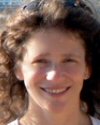 Melanie Metzger (USA) Melanie Metzger (USA)
Melanie is a professor and coordinator of the master’s degree
program in the Interpretation Department at Gallaudet University.
She is an interpreter practitioner, an interpreter educator, and
her research focuses on sociolinguistic examinations of interpreted
interaction. She is certified as both a signed language interpreter
and as a cued language transliterator, and has served as president
of the TECUnit, certifying body for CLTs. She holds an MA in Linguistics
from Gallaudet University and a Ph.D. in Sociolinguistics from Georgetown
University. Her publications include, Sign Language Interpreting:
Deconstructing the Myth of Neutrality and she is co- editor of the
series Studies in Interpretation published by Gallaudet University
Press.
 Geoff
Minshull (Technical Support) Geoff
Minshull (Technical Support)
Geoff works for Direct Learn Services. He has been in further education
since 1983, mainly in the UK, during which time he has worked with
a wide range of businesses and organisations. He has also worked
and lectured extensively in Southern Africa, Central America, and
the USA. Geoff has been involved in online education for many years,
and has worked with LEAs, colleges and universities, as well as
national educational organisations. He has been running online conferences
and other online events since 2001. His first degree was from Sussex
University in Economics, and he has an MSc from Loughborough University
in Computers and Education.
 Judith Mole (Conference
chair) Judith Mole (Conference
chair)
Judith founded Direct Learn Services in 2001 after working in education
since 1992. A graduate of the University of Derby, she started working
with Deaf students while at college and has since managed support
units for Deaf students both at Sheffield Hallam University and
at the University of Wolverhampton, where she was also a member
of the board of governors. She has worked both in the higher and
further education sector. She has managed a number of projects for
the University of Wolverhampton which created online BSL/English
dictionaries for art, science and engineering as well as a BSL/English
dictionary for ICT for the DfES Standards Unit. She has written
a number of publications and books on supporting Deaf students.
Judith has a first degree in Drama, Film and Television Studies
as well as a PG Cert in TESOL from Sheffield Hallam University.
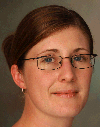 Jemina
Napier (Australia) Jemina
Napier (Australia)
Jemina has many years experience of interpreting and an MA in BSL/
English Interpreting from Durham University in the UK. While working
as a BSL/ English interpreter she specialised in mental health,
conference, media and educational interpreting. She coordinated
the Sign Language Interpreters Training Course at the City Literary
Institute in London for two years, before moving to Sydney, Australia
in 1998. Since that time Jemina has become accredited as an Auslan/English
Interpreter, and is now an examiner with the National Authority
for the Accreditation of Translators and Interpreters.
In 2001 she completed her PhD thesis looking at linguistic coping
strategies of sign language interpreters, which has been published
by the Forest Bookshop in the UK. Jemina continues to work as an
interpreter in either BSL, Auslan or International Sign, although
most of her time is spent lecturing and on research. She now co-ordinates
the Postgraduate Diploma in Auslan/ English Interpreting at Macquarie
University in Sydney Australia, and was recently awarded a research
fellowship, which will investigate Auslan interpreting and comprehensibility.
She has published several articles and book chapters discussing
the interpreter role, interpreting strategies and teaching of interpreters.
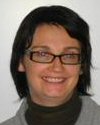 Tamara Pearce (Australia) Tamara Pearce (Australia)
Tamara began work as an interpreter in 1995. After many years of
community interpreting she went on to work behind the scenes managing
an interpreting agency. During this time she became interested in
training and undertook post-graduate studies in Vocational Education,
completing a Graduate Diploma in Industrial Education and Training.
She has taught in the Diploma of Interpreting and conducted numerous
workshops. Tamara has previously worked in the Victorian TAFE system
supporting institutions to provide access for Deaf students. She
currently undertakes project work and has recently completed evaluating
an Interpreter Mentoring Program for interpreters in Victoria, Australia.
 Lynette
Reep (USA) Lynette
Reep (USA)
Lynette Reep, CI and CT, has taught dozens of workshops on ethics
and empowerment for interpreters across the United States and in
Canada since 2004. She attended Northeastern University's "Basic
Interpreter Training Program" in Boston before the widespread
advent of four-year training programs, and credits her current abilities
as well as her emphasis on collegial support and collaboration to
the extensive informal mentoring she received from experienced interpreters
and Deaf consumers early on. A strong believer in the importance
of drawing on both internal and external resources, her teaching
strives to recognise and support colleagues at every level of experience.
 Linda
J. Spencer (USA) Linda
J. Spencer (USA)
Linda J. Spencer PhD is an assistant professor in the Department
of Communicative Disorders & Sciences at the State University
of New York at Geneseo. She also holds a complimentary appointment
as an Investigator on the University of Iowa Hospitals and Clinics
Children's Cochlear Implant Project where she was an assistant research
scientist with and a research assistant for the past 15 years. Her
interests include examining the speech-language and literacy development
of children with hearing loss and also those who use cochlear implants.
She earned her bachelor's and PhD degrees in speech and hearing
science at the University of Iowa. Her current line of research
involves examining the relationship of phonology, language skills
and reading abilities in children with normal hearing and in children
with hearing loss. Her publications have appeared in Journals such
as Ear and Hearing, Journal of Speech-Language-Hearing Research,
Journal of Deaf Studies and Deaf Education, Laryngoscope, and the
American Journal of Audiology. She is also on the editorial board
of the Journal of Deaf Studies and Deaf Education.
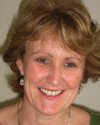 Ruth
Swanwick (UK) Ruth
Swanwick (UK)
Ruth is a senior lecturer in deaf education at the University of
Leeds, UK. She leads the MA in Deaf Education programme, which is
a distance education course leading to the mandatory teacher of
the deaf qualification. Her research focuses on the use of sign
language in the education of deaf children and ways in which this
supports language and literacy development. This has grown out of
her teaching experience with deaf children who require access to
both sign language and a spoken/written language for their learning
(sign bilingual).
Her recent funded research includes an ESRC project looking at
deaf children's early literacy experiences in the home. This was
a collaborative project with the University of Birmingham. She has
also led a Nuffield funded project looking at the role of sign language
for deaf children with cochlear implants. Other research interests
include deaf children's phonological development and their learning
styles and experiences. At a national level, she am actively involved
in policy and research initiatives to develop sign bilingual practice
in schools and services. Her energies are currently focused on developing
more international collaboration between researchers and practitionners.
|
